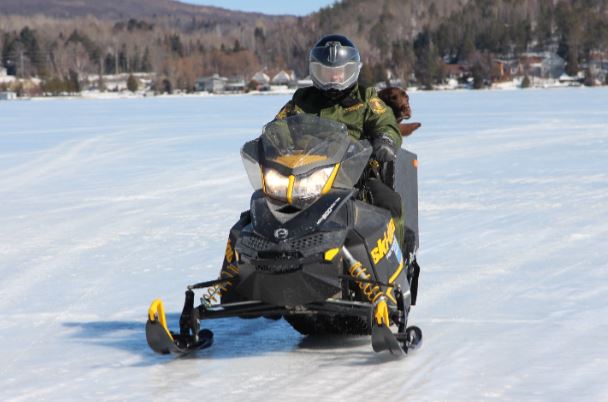Winter is here and with it, ice is forming on lakes, rivers, and waterways.
The OPP is taking the time to remind everyone that no ice is without some risk, and as such has provided some safety tips for anyone who plans to be travelling on ice over the winter season.
The police say you should avoid slushy ice, fluctuating water levels, or ice that is on or near moving water. If the ice has thawed, re-frozen, layered, or rotten, which is caused by sudden temperature changes, it is not safe.
Other factors that can weaken ice include the age of the ice, or snow that can blanket the ice and sometimes cause it to melt and prevent hardening. Be on the lookout for pressure cracks in the ice that has been caused by wind or water currents. Officers also say to measure clear, hard ice, in several areas.
The OPP also has a checklist to look at when considering venturing out:
- Go with an experienced, safety-conscious guide who is familiar with local conditions. Do not travel on ice alone.
- Constantly scan the frozen terrain for signs of changing conditions.
- Loosen buckles and undo belts on any packs or equipment you are carrying or riding on so they can easily be removed. Loosen bindings on snowshoes.
- Do not drink alcohol and travel over ice-covered bodies of water. Alcohol impairs judgment and reduces your body’s ability to stay warm in cold conditions.
- Carry a map and compass or a GPS system. A changing weather front can cover a lake quickly in fog or a snowstorm and leave you disoriented on a surface with no landmarks. Make sure your GPS battery is fully charged. Carry a compass as backup and know how to use it.
- Do not travel over ice-covered water in early and late winter when conditions are more likely to be dangerous.
- Consider carrying a small personal safety kit that should include items such as a lighter, waterproof matches, a magnesium fire starter, a pocket knife, and a whistle. Keep a cellular telephone in a waterproof pouch. Ice picks and a rope is also worthwhile. Carry high energy food and keep dry clothes in your vehicle.
- Most importantly, if in doubt, don’t go out!
To avoid unnecessary risks, the OPP says to try and stick to the available land-based Ontario Federation of Snowmobile Club (OFSC) trails whenever possible.






